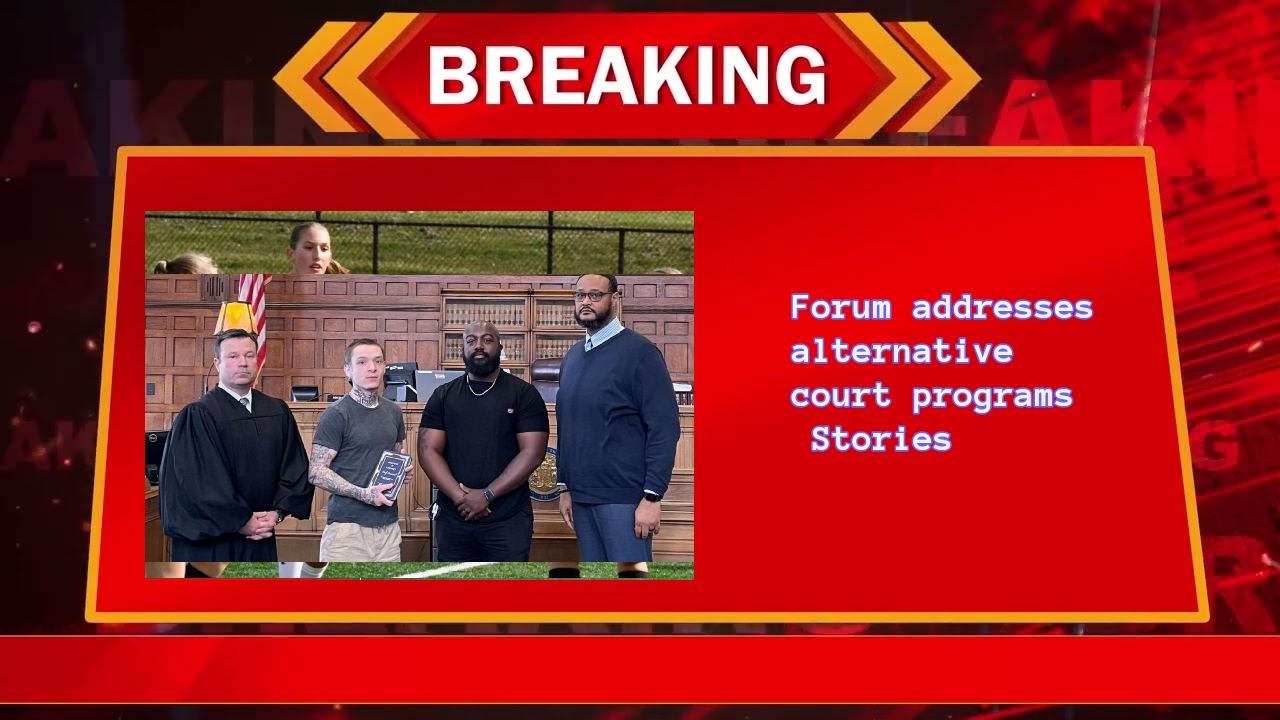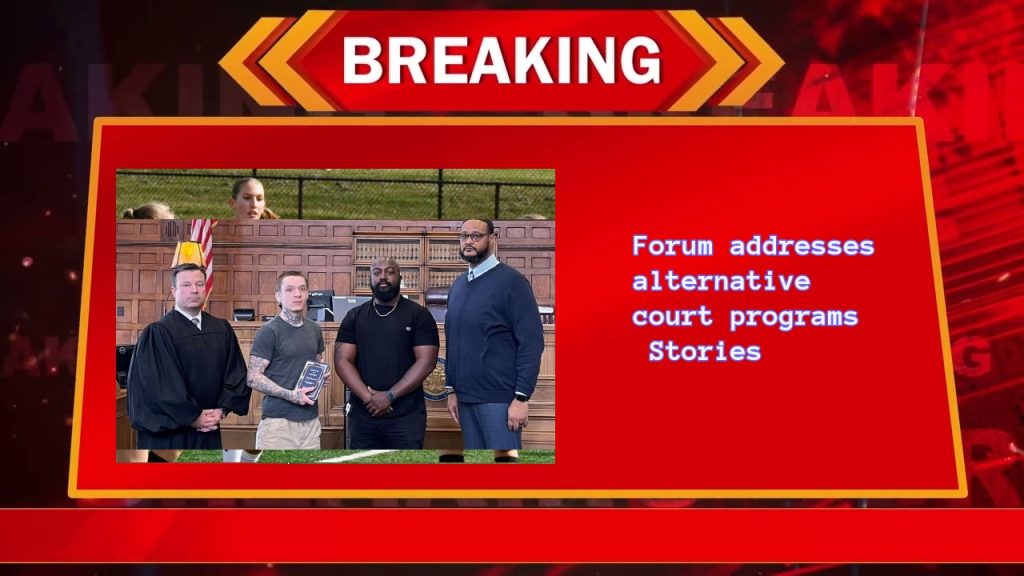CUMBERLAND — At a community meeting held Thursday at Allegany College of Maryland, the topic of judicial-led initiatives to break the cycle of substance addiction and mental health-related criminality was covered.
More than 60 people registered for the Zoom-streamed event, which focused on coordinated efforts by state and local agencies and organizations, including behavioral health and criminal justice, to use comprehensive court-supervised programs instead of jail time to reduce the number of non-violent habitual criminal defendants. In 2018, the Drug Treatment Court division of Allegany County was founded.
Judge Erich Bean of the Allegany County District Court, who is in charge of a brand-new mental health court that functions similarly to Drug Treatment Court, was one of the forum panelists he introduced.
According to Bean, the local mental health court program, which is also an alternative to incarceration, started off with just one participant in April but currently has four and plans to enroll ten by the program’s one-year anniversary. He remarked, “We’re new, so we’re learning as we go,” referring to the first user of the program who received assistance from the county health department.
Having a large homeless population
Bean remarked, “We got her properly medicated,” “She’s progressing and I’m super proud of her.” The program is voluntary and focused on assisting one person at a time. According to Bean, participants need to be competent and have a confirmed mental health condition.
 According to him, it aims to enhance both public safety and the quality of life for participants, who frequently have housing and job needs. Bean remarked, “We have a very large homeless population,” referring to Allegany County, adding that one of the program’s current participants has a tent.
According to him, it aims to enhance both public safety and the quality of life for participants, who frequently have housing and job needs. Bean remarked, “We have a very large homeless population,” referring to Allegany County, adding that one of the program’s current participants has a tent.
Allegany County State’s Attorney James Elliott, Cumberland City Councilman Eugene Frazier, former county director of emergency services James Pyles, Cumberland City Police Department Chief Chuck Ternent, District Public Defender Jessica Colwell, Allegany County Problem Solving Court Coordinator James “Pete” Washington, and Ending the School to Prison Pipeline founder Leo Chello Webb were among the other panelists.
According to Frazier, he has friends and relatives who struggle with addiction and mental health issues. “The community should pick people up when they fall,” he remarked. Frazier noted that if the mental health court is as successful as the Drug Treatment Court, “we have a great thing here.” He has attended graduation ceremonies for the Drug Treatment Court.
According to Elliott, effective alternative incarceration initiatives foster participants’ personal development and independence. “A lot of people in the county need the programs,” he said, adding that in order to participate in the local drug and mental health courts, participants must submit a guilty plea for the alleged offense.
According to Colwell, the different organizations that are a part of the programs collaborate and have the same objective of helping participants eventually get their guilty plea revoked and their record wiped.
“It is a different type of process but it really can be successful,” she stated. “We don’t believe incarceration is effective.” In order to keep kids out of the criminal justice system, Webb discussed the importance of assisting them in their early success.
He said, “We have to do better by our children,” and he emphasized that youngsters should enjoy going to school. According to Ternent, a lot of police job involves dealing with mental health and substance misuse issues.

